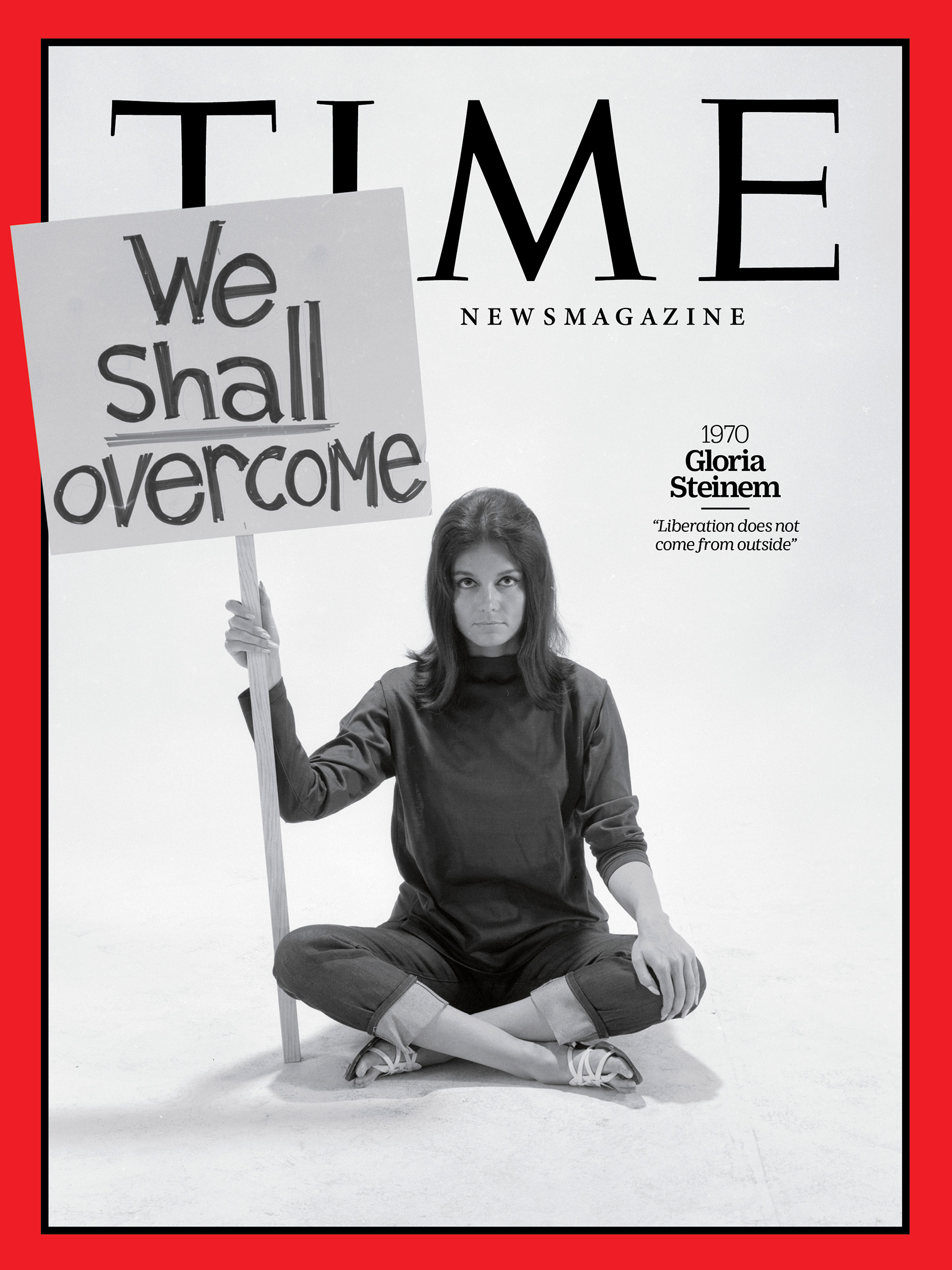By 1970, Gloria Steinem was already becoming a key voice in the women’s movement through her reporting for New York magazine. But that year, her activism left the page in a momentous way. Though she was afraid of public speaking, Steinem did it anyway. That May, she testified at Senate hearings for the Equal Rights Amendment. “I have been refused service in public restaurants, ordered out of public gathering places and turned away from apartment rentals,” she told her almost all-male audience. “All for the clearly stated, sole reason that I am a woman.” At the Women’s Strike for Equality on Aug. 26, the 50th anniversary of U.S. women’s suffrage, Steinem spoke to some 20,000 in New York City. Her increasing dedication sparked her to launch a feminist platform: in 1971, she co-founded Ms. magazine.
With a remarkable ability to communicate the agenda she helped set, Steinem quickly evolved from journalist to the face of the women’s movement—the headline speaker at countless protests; the messenger of a more equal, feminist future; and an indispensable force in reimagining the fate of American women for decades to come. —Eliana Dockterman
This article is part of 100 Women of the Year, TIME’s list of the most influential women of the past century. Read more about the project, explore the 100 covers and sign up for our Inside TIME newsletter for more.
